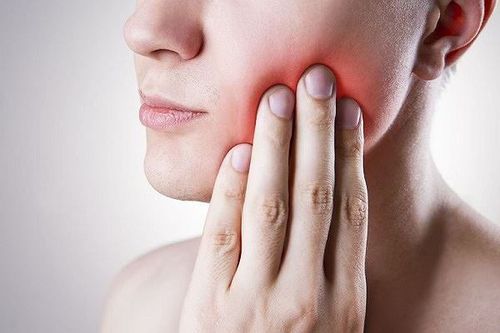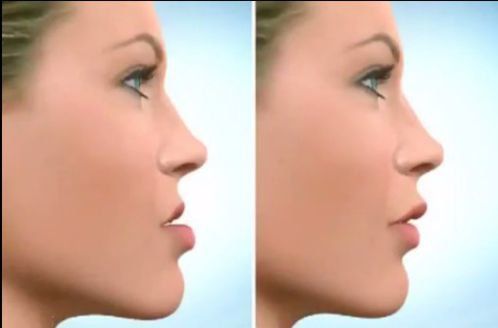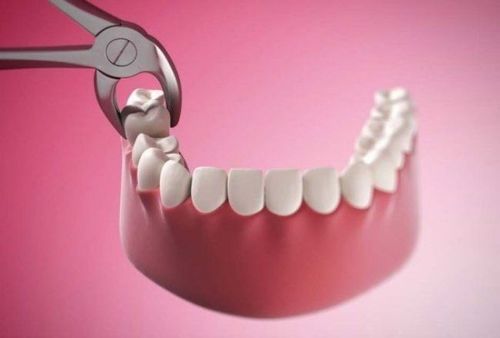This article was consulted with Master, Doctor Dang Tien Dat - Dentist - Stomatology - Examination and Internal Medicine Department - Vinmec Ha Long International General Hospital.
Wisdom teeth are called the 8th molars located at the very back of the dental arch. Usually, wisdom teeth start to erupt in adulthood, from 17 to 25 years old, with 4 teeth located at the innermost corners of the jaw. However, in reality, there are many cases where wisdom teeth only start to erupt at the age of 40. So, should wisdom teeth be extracted at the age of 40, and are there any complications?
1. Symptoms when wisdom teeth erupt
The process of tooth eruption in humans is divided into 2 stages. The first stage is the formation and development of the deciduous dentition, which consists of 20 teeth, including 8 premolars, 8 incisors, and 4 canines. This dentition begins to erupt when a child is 6 months old and completes the deciduous dentition when the child is 3 years old. They play a role in helping children eat, learn to speak, and communicate. The second stage is the development of the permanent dentition, which is the dentition that erupts to replace the deciduous teeth at the age of 6. This dentition consists of 32 teeth (16 molars, 8 incisors, 4 canines, and 4 wisdom teeth). The latest teeth to erupt are wisdom teeth or 8s, which begin to erupt in adulthood from 17 to 25 years old. In many cases, wisdom teeth may not erupt until the age of 40.
For those who have just erupted wisdom teeth at age of 40, or for any other age group that has erupted wisdom teeth, there are many typical symptoms as follows:
- Pain
The location of wisdom teeth is right at the back of the dental arch and they erupt last when the other 28 teeth have already completed their position. Wisdom teeth have less space to erupt, so they usually only erupt a little. Therefore, the first symptom when wisdom teeth erupt is that patients will feel a lot of pain in the innermost part of the jaw. The eruption process is often intermittent and lasts for many years, so the pain can last for many episodes. - Swollen gums
Swollen gums are a fairly common symptom when wisdom teeth erupt. Because wisdom teeth erupt in adulthood, from 17 to 25 years old, and may even not erupt until the age of 40.
This is the time when the jawbone has a harder bone quality, less growth in size, the overlying soft tissue and mucosa are also thicker, combined with systemic factors that make wisdom teeth more likely to erupt in an impacted or angled position. Therefore, when they erupt, the gums have the first reaction of contracting and starting to swell, causing soreness and pain.
- Swollen cheeks, painful jaw opening, fever
One of the signs of wisdom tooth eruption is fever, swollen cheeks, and more severely, pain when opening the mouth and moving the jaw. Fever when teeth erupt is usually mild and does not last long. The feeling of pain in the teeth creates conditions for an increase in body temperature.
In addition, patients may also feel that the dental arch becomes heavy, no longer as flexible as before, feeling pain when opening the mouth wide and difficulty eating.
Symptoms when wisdom teeth erupt often occur simultaneously or consecutively, with pain being the most common symptom in everyone.

2. Are wisdom teeth dangerous at 40?
By the time wisdom teeth begin to erupt, the jawbone and gums have developed firmly, and the other 28 teeth have already settled firmly on the dental arch and almost completely occupied the space for the wisdom teeth to erupt. Therefore, wisdom teeth often find it difficult to erupt straight, are obstructed, and lead to impacted wisdom teeth or misaligned wisdom teeth.
At any age, including 40, impacted or misaligned wisdom teeth can lead to the following dangerous oral complications:
- Impacted or misaligned wisdom teeth can put pressure on and push the adjacent 7th tooth, leading to malocclusion. In addition, this phenomenon also causes food to get stuck between the teeth, creating conditions for the development of bacteria and causing tooth decay, toothache, and tooth damage.
- Impacted or misaligned wisdom teeth can cause pain, fever, redness and swelling of the gums, and local infection, forming abscesses and inflammatory cysts.
- In some patients, jaw cysts occur. This condition can damage teeth and, more seriously, affect nerves and damage the jawbone.
- Swollen gums cause inflammation, burning, and discomfort, affecting the patient's speech and eating.
- Misaligned wisdom teeth can compress the nerves, leading to a decrease or loss of sensation in the skin, lips, mucosa, and teeth in half of the dental arch.
- Misaligned wisdom teeth can cause sympathetic syndromes such as redness around the eye socket and half facial pain.

3. Should wisdom teeth be extracted at age of 40?
The symptoms and complications of wisdom teeth eruption can occur at any age. Therefore, according to the recommendation of doctors, people aged 40 who have normally erupted wisdom teeth and do not experience pain or any symptoms do not need to have their teeth extracted. Because they do not have a negative impact on oral health.
In addition, patients need to maintain good oral hygiene, use dental floss, and rinse their mouth with saline to limit possible infections.
In cases where wisdom teeth are impacted or misaligned, causing symptoms such as pain, infection, swollen cheeks, and painful jaw opening, patients need to go to the hospital for examination and accurate diagnosis by a doctor. Early tooth extraction will help limit complications that adversely affect health.
Please dial HOTLINE for more information or register for an appointment HERE. Download MyVinmec app to make appointments faster and to manage your bookings easily.














